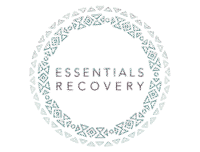Trapped in what seems to be a ceaseless spiral of problems created by alcoholism can appear hopeless. The troubles caused by alcoholism can explode when other mental health issues are present. Depression is one of the most common struggles from which alcoholics suffer.
Frequently, alcohol abuse and depression are linked. In fact, most drug and alcohol problems are but symptoms of deeper issues. To help battle the addiction, substance abuse professionals will help unearth what are called co-occurring conditions. let’s look at why removing alcohol is a necessary place to begin recovery.
Alcohol is a Depressant
Despite a false sense of euphoria that you may experience from the initial effects of an alcohol buzz, alcohol is a depressant. Rather puzzling that someone who feels depressed would search for happiness at the bottom of a bottle.
As counterproductive as it is, alcohol abuse is a common way depressed people try to self-smedicate. The biological and psychological evidence clearly indicates this is a dangerous path. Not only does your depression get continually worse, so does your alcoholism.
We cannot stress how dangerous a combination that depression and alcoholism are. One disease feeds off the other. There will ultimately come a day when the depressed alcoholic cannot imagine living with or without another drink. There will be no defense.
This is a tremendously dangerous point to reach. Alcohol mixed with depression can create thoughts of self demise. When alcohol is added to depression, the end result can your actual end. There is no way to sugarcoat this harsh reality.
How Recovery Can Help Both Alcoholism and Depression
Many who report an unnatural tendency to being depressed also incorrectly believe alcohol helps. As we said, you may feel upbeat and euphoric initially from the effects of the alcohol. However, as your body processes the alcohol, it will begin to work as a depressant.
People who are not alcoholic will drink in moderation to feel that relaxing feeling. Someone with depression may get a short reprieve, but soon they tumble down a dark hole that can make serious depression very dangerous.
That\’s how recovery helps both. The first step is to take away the booze that acts as fuel for your depression. You will undoubtedly still experience depression. Without the ill-guided crutch of alcohol, it may seem worse.
That is the baffling part of alcoholism. While it might initially seem to make you feel less depressed, it is setting you up for even worse depression. Eventually, the cycle becomes so blurred you cannot find your way out.
You begin to drink to fight your depression, but find yourself getting even more depressed because you cannot stop drinking. This is a terrible place to be. Alcoholics call it the jumping off point, a dangerous place to end up.
Once you get a few days of sobriety under you, a solid treatment plan will begin targeting any co-occurring conditions. This is referred to as dual diagnosis. If you\’ve come to the wise conclusion that you drink alcoholically, you’ll have pinpointed one diagnosis yourself.
But how do you stop? A trained substance abuse professional will help guide you on a life-changing journey. You will explore the symptoms and triggers that helped fuel your alcoholism. As with many addicts and alcoholics, it will not be surprising to find depression on your list.
With an individualized treatment program, you will be able to remove alcohol from your life, while at the same time taking steps to deal with your depression. The fear of how dangerous the combination of alcohol and depression can be may be enough to get your serious attention.
Nevertheless, once you remove a depressant from someone who is depressed, gradually the depression can be healed. Addressing one without dealing with the other is rarely successful. However, step one will be to erase alcohol from your life. Recovery is the key to taking that first step.
Battling alcoholism can seem like a lonely, unwinnable struggle. The effects of alcoholism can cause feelings of depression. If you already suffer from depression or similar mental health challenges, alcoholism and drug abuse can dangerously compound the problem.
It doesn’t have to be this way. There is a solution, and that solution starts by asking for help. This help will begin by establishing a firm foundation for your recovery from alcoholism. At the same time, you will begin to address co-occurring conditions such as depression.
A beautiful journey is waiting for you. Recovery is more than just a daily reprieve from drugs or alcohol. It is an exciting lifestyle change that will help you begin building a better life. Make that call for help today at 855-509-1697, because tomorrow could be too late.

